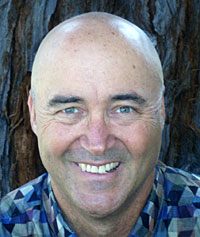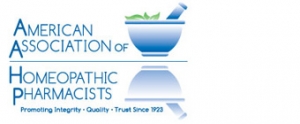National Center for Homeopathy responds to recent FDA, FTC actions
By John Weeks
by John Weeks, Publisher/Editor of The Integrator Blog News and Reports
 The National Center for Homeopathy (NCH) typically convenes practitioners and consumers to educate the value of these medicines in their infinitesimal doses. In the last three months, NCH’s leaders have focused on doses of another sort: two body blows from federal agencies. One hit came on September 30 from the U.S. Food and Drug Administration (FDA). The second of the one-two punch arrived mid-November from the Federal Trade Commission (FTC). The NCH recently issued a statement to its members on its responses.
The National Center for Homeopathy (NCH) typically convenes practitioners and consumers to educate the value of these medicines in their infinitesimal doses. In the last three months, NCH’s leaders have focused on doses of another sort: two body blows from federal agencies. One hit came on September 30 from the U.S. Food and Drug Administration (FDA). The second of the one-two punch arrived mid-November from the Federal Trade Commission (FTC). The NCH recently issued a statement to its members on its responses.
It’s been a tough couple of months for the field. First, the FDA warning against homeopathic teething tablets spread a viral message through the media that these homeopathic were “associated with” or “related to” 10 deaths and 400 adverse events. The evidence they produced when I contacted the agency was about as distant from a confirmed causality as “association” can be. Yet, the damage was done. One after another, major media headlines unleashed homeopathy’s special Zika. For example, Time magazine’s “FDA Says Homeopathic Teething Products May Be Linked to 10 Infant Deaths.”
Then, the FTC published its November 16 action, “Enforcement Policy Statement on Marketing Claims for Over-the-Counter (OTC) Homeopathic Drugs.” In 2015, the agency opened an investigation regarding its concern that the evidence for homeopathic medicine do not support the label claims. The new requirements are that labels on OTC homeopathics must state”
- “There is no scientific evidence that the product works; and
- The product’s claims are based only on theories of homeopathy from the 1700s that are not accepted by most modern medical experts.”
 A first response to the FTC was unleashed by Dana Ullman, MPH, CCH, author, educator, homeopathic clinician, and product vendor. His “Extreme Bias in FTC’s Ruling on Homeopathic Medicine” at GreenMedinfo.com provoked over 2660 Facebook shares and 81 comments by the time of this writing. Ullman challenged the FTC by citing multiple research studies on homeopathy that have been published in such top-tier journals such as The Lancet, British Medical Journal, Pediatrics and the Journal of Clinical Oncology. Some of these publications are systematic reviews, with positive conclusions.
A first response to the FTC was unleashed by Dana Ullman, MPH, CCH, author, educator, homeopathic clinician, and product vendor. His “Extreme Bias in FTC’s Ruling on Homeopathic Medicine” at GreenMedinfo.com provoked over 2660 Facebook shares and 81 comments by the time of this writing. Ullman challenged the FTC by citing multiple research studies on homeopathy that have been published in such top-tier journals such as The Lancet, British Medical Journal, Pediatrics and the Journal of Clinical Oncology. Some of these publications are systematic reviews, with positive conclusions.
Ullman next sought to debunk the FTC’s view that homeopathy is based only on theories from the 1700s. He described how the exotic modern scientific exploration of “nanoparticles” appears to confirm the most outrageous of homeopathy’s claims. Using multiple types of spectroscopy, Ullman writes, scientists have found particles of original medicinal agents “even after they were diluted 1:100 two-hundred times.”
 On December 21, the field’s organizational leaders, NCH, issued its organizational update to members. To inform the organization’s strategy, NCH convened a meeting of key stakeholders from several homeopathic organizations and leaders in the industry, including the manufacturers’ group, the American Association of Homeopathic Pharmacists (AAHP). The AAHP, the NCH reported, is “in direct negotiations with the FTC.”
On December 21, the field’s organizational leaders, NCH, issued its organizational update to members. To inform the organization’s strategy, NCH convened a meeting of key stakeholders from several homeopathic organizations and leaders in the industry, including the manufacturers’ group, the American Association of Homeopathic Pharmacists (AAHP). The AAHP, the NCH reported, is “in direct negotiations with the FTC.”
The core message of the NCH to its members was to stand down and let the AAHP take the lead. Don’t demonize the FDA and FTC. Regulatory issues are complex. Directly contacting the agencies might harm the cause. Let the manufacturers take the lead. If you wish to know more about all the relevant government documents and industry responses, NCH has posted them. For more background, visit the NCH website.
The NCH’s update included two optimistic touches. First, they offer a view that the manufacturers “have a long-standing working relationship with the FTC regarding advertising and believe they will be able to settle this favorably.” Then, in closing, “we are optimistic about this situation and are hopeful that these matters will be settled favorably, resulting in an increased governmental understanding of homeopathy and continued open access for consumers to our health-giving medicines.”
Comment: From an observer’s perspective, the FDA-FTC actions looked like one agency knelt behind the homeopathic field, and the second then pushed it over. Such a polarized response would seem to exemplify what the NCH is warning against. For balance, then, while Ullman’s points are well-made and intriguing, even, they skate over a tough scientific reality for the industry. The likelihood of quality scientific evidence on a specific remedy at a specific dose from a specific manufacturer—such as is required of regular pharmaceuticals used at label strength— is slim. The FTC has reasons to challenge the industry on claims, while at the same time it’s denial of the field’s positive outcomes remains a form of bigotry.
This denial infuses my wonderment at NCH’s overt optimism. My concern is deepened by the non-transparent way the FDA managed the “warning” on teething agents. Their public message said nothing about deaths or of 400 adverse events. Nor do that distinguish between how many were “seizures” and how many “nausea”— the media put the accent on the former. It was only when I contacted the FDA as media that they shared the damning “associations” that they were sending out to other media. It wasn’t the language in the public document but this so-called fact sheet prepared for the media that blistered the headlines. The NCH, for instance, had no direct access to that document until I shared it with them. Is this a respectful way to treat an industry? Balance asks us to frame a question: would the FDA have used this process to create headlines on as loose of “association” with deaths were it big pharma that was in the agency’s sights
I don’t know the answer. We do know that the FDA’s decision to publish these “associations” and the non-transparent methods they used were, as a human-to-human thing, “not nice.” It wasn’t a way to deal with an “industry with which they have a longstanding working relationship.” As the NCH shares with its members, both the FTC and FDA have “both been scrutinizing homeopathy for the past two years.” My guess is that more boots will fall before these two are lifted from the field’s back.
















